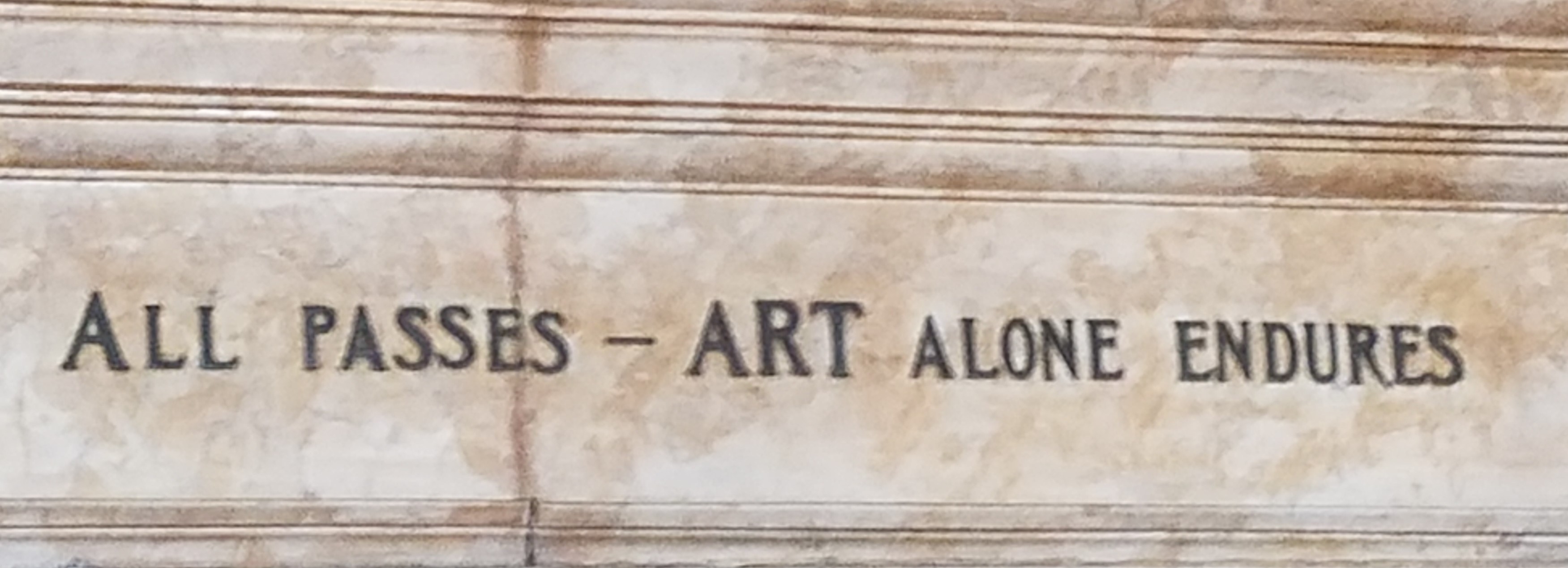“Curiosity about life in all of its aspects, I think, is still the secret of great creative people.” Leo Burnett
I first heard the term “creatives” a few years ago and hated it. I was at a meeting of the community arts and business alliance I am involved with and our leader was speaking of the “creative class.” I really disliked the distinction of classes when speaking of arts since I believe art transcends class and other barriers. Now, I can see the wisdom of calling musicians and artists the “creatives.”
That same leader talked about the general public believing all artists are Rock Stars. He said, what we do is unworldly to the vast majority of folks because they are not able to understand how we do what we do. Taking a piece of clay or a blank piece of paper and creating a sculpture or a painting, hearing notes on a page in your head and then being able to translate them to a live performance is something Magical. We’ve studied and worked most of our lives to achieve that Magic but those seeing and hearing what we do don’t realize that.
The price for our Magic, on us as people, can be high. If we want to continue in our profession we must understand what we need to BE creative. I’ve written other Choral Potpourri blogs about this subject but during the summer, I’ve had several ChoralNetters contact me, wondering if they are off base doing what they do, so they are able to do what they do. I’ll be sharing some of the things they’ve written about today.
Johnnie* started doing Yoga a few years ago. He loves the calm he feels after doing the breathing and the strength and flexibility he’s developed. If he is able, he stops in at the Yoga studio twice a week, more if he is able. A friend suggested he try Yoga when he seemed super-stressed after a concert. He’d been curious about Yoga before but never realized how much it would help. Johnnie feels better, has more energy, is able to focus better and is happier.
Clare* began making lists every week while in college. She now uses her IPad for her lists. Every Sunday evening, she takes thirty minutes to sit down and make lists for every chorus she directs and what needs to be done at home. She actually uses a form she’s developed. Every chorus has a list, and she fills in the blanks for what she wants to accomplish for every piece they are working on. There is also room at the bottom to write a note or two about the week before. Knowing what she is doing in small increments helps her psychologically focus on those things first and a short “review” of the previous week helps her be aware of where she is in long term goals.
Wayne* used to fly by the seat of his pants in his church job. His “day job” is a middle management position and pays the bills but the church job feeds his soul. He was no longer enjoying his choir because he always felt unprepared. It suddenly struck him if he scheduled anthems and music ahead of time, half the battle of preparation would be over. He started scheduling music during the summer, his church choir’s down time. He leaves a few Sundays in Advent and Lent with wiggle room so he can flip the selections if he needs to due to his singers illnesses or vacations. Clergy decided this summer they too would “sketch” out plans for all major Holy Seasons, in conjunction with Wayne, and he says there is a real “team” feeling for the first time since he joined the staff. This is the third year he has planned so far ahead and it has been a huge success.
Robbie* had some health problems a few years ago and his physician told him he needed to change his lifestyle. But Robbie didn’t know how he could. He directs several community choruses, teaches privately and sings in a professional chorus. He was constantly driving somewhere, eating fast-food as he drove and never had time to exercise. He told me he judged himself about 50 pounds overweight and felt crummy all the time. This unhealthy lifestyle was also taking a toll on his voice, which was why he went to his doctor. He says he began making healthier food choices, tries not to eat while driving and runs three days a week in the morning before he starts teaching. He feels better and is less stressed. Making time for his health has actually created more time for what he needs to do.
Please share some of your own techniques with us!
*Name Withheld



Leave a Reply
You must be logged in to post a comment.